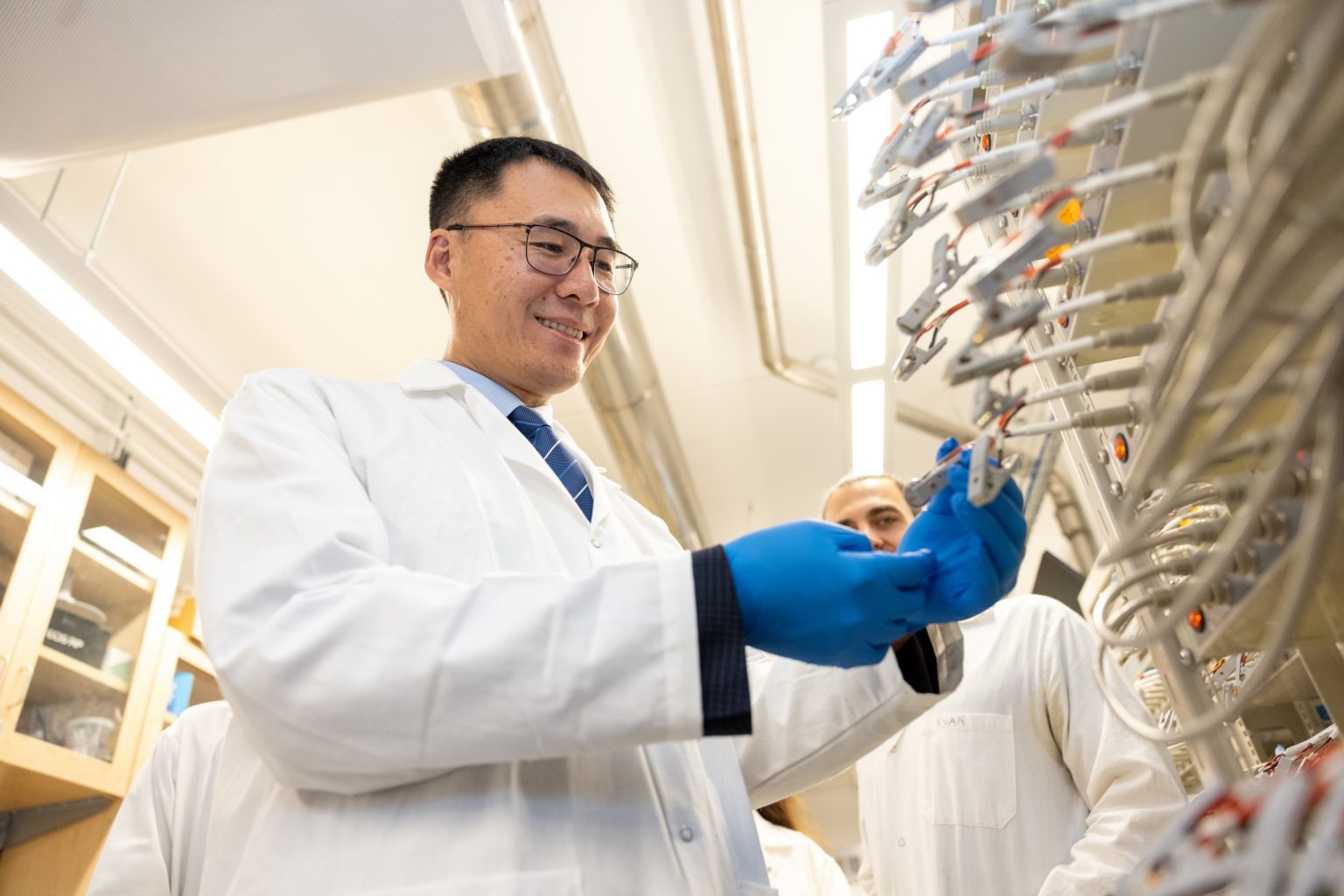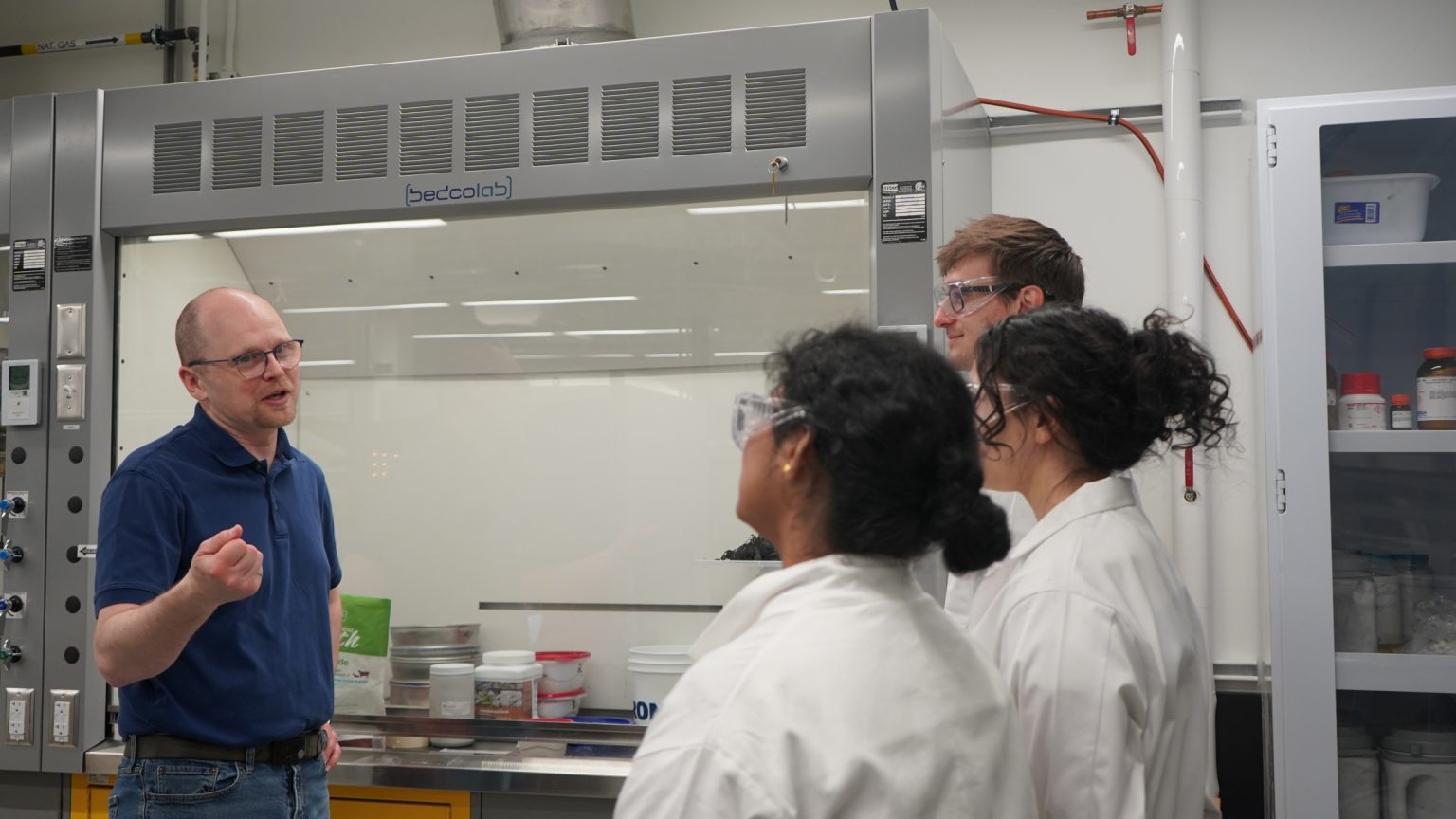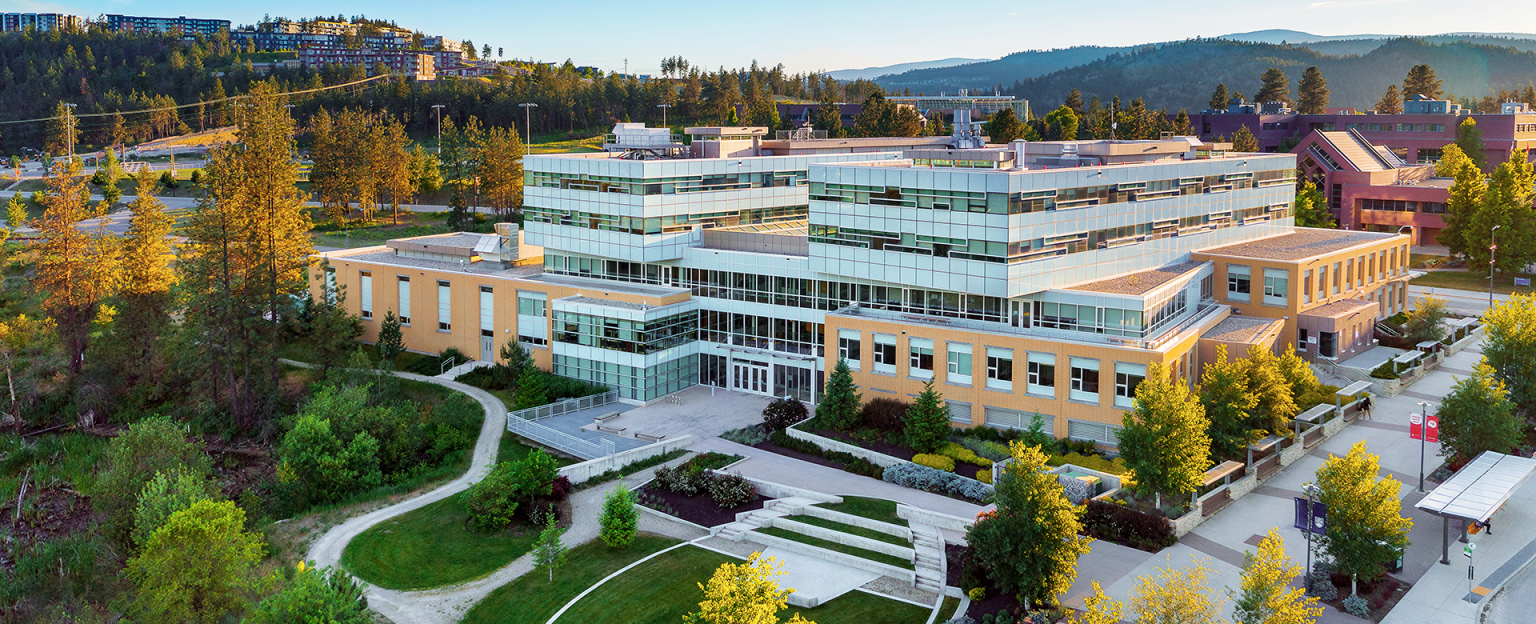
Note: This story was originally published on the Pacific Economic Development Canada (PacifiCan) website and is being shared for awareness within UBC Okanagan (UBCO) School of Engineering and UBCO Campus community.
The University of British Columbia’s Okanagan campus (UBCO) is paving the way to a greener future with an innovation hub dedicated to repurposing waste materials into valuable products and promoting sustainable technologies.
With $1.9 million in funding from PacifiCan, the Cleantech Hub is catalyzing academic-industry collaborations to commercialize sustainable materials and promote clean technologies.
For example, electric vehicle (EV) batteries need carbon for their electrodes, but this carbon is often sourced from industries like mining, oil, and gas – major contributors to greenhouse gas and CO2 emissions. The Cleantech Hub is addressing this issue by extracting carbon from retired heavy-duty vehicle tires to produce battery electrodes for new EVs. This innovative approach not only reduces the environmental impact of tires, but also transforms industrial waste into a valuable resource while contributing to lower emission and a more sustainable energy future.
The Cleantech Hub is also exploring turning other industrial waste into value-added products, such as working with Tolko Industries to convert wood fly ash from bioenergy production into a greener and more sustainable type of concrete. Fly ash normally ends up in the landfill but can be repurposed into new value-added products, creating additional revenue streams for companies.
UBCO’s new Battery Innovation Centre (BIC) in the Cleantech Hub is another way the university and industry are working together to supercharge energy storage innovation and deployment in Western Canada. UBC is advancing technology in battery recycling and materials processing with partners like Fenix Advanced Materials, a clean technology company that specializes in the manufacture of ultra-high-purity metals. Researchers are simultaneously advancing the technology and the circular battery economy in B.C.

UBC Okanagan Engineering Professor Lukas Bichler and students in the Cleantech Hub.
Another example is a partnership with T’Sou-Ke First Nation to extract chitin, a bio-polymer material from the shells of the European Green Crabs, one of the ten most invasive species in the world. Biopolymer can be used for industrial applications, like cosmetics, pharmaceuticals, and biodegradable plastics.
The projects at the Cleantech Hub rely on strong partnerships between academia and key industry partners. This collaboration creates new market opportunities and supports Canada’s transition to a low-carbon economy. Additionally, the Hub emphasizes inclusivity, aiming to generate employment and training opportunities for underrepresented groups, including women, youth, and Indigenous students.
Key benefits of the Cleantech Hub include:
- Advancing clean technologies research and reducing the impact of discarded industrial waste from sectors such as mining and forestry.
- Accelerating regional development and positioning B.C. as a leader in sustainable innovation.
- Creating a clean technology innovation ecosystem between academic, industry, community, and government stakeholders.
- Providing a world-class, leading-edge space for UBC researchers, industry, and community to collaborate.
- Training a diverse, highly-skilled workforce.
The Cleantech Hub demonstrates how collaboration between universities and industry can lead to meaningful change. It’s not just about developing new technologies; it’s about rethinking waste and the economy to create a more sustainable future for all British Columbians.

Quotes
“UBC Okanagan researchers are creating leading-edge solutions for the complex challenges faced here in the BC Interior and around the world, such as how to reduce waste and create new value from existing materials. We are proud of the ground-breaking work being done on our campus and with our partners to create novel solutions that benefit both the environment and the economy. I am grateful for the Government of Canada’s ongoing support for this research project and the UBCO Clean Tech Hub.” – Dr. Lesley Cormack, Principal and Deputy Vice-Chancellor, the University of British Columbia, Okanagan Campus
“The School of Engineering at UBC Okanagan is committed to creating enduring value not only for our region and province but for the nation. Collaborating with industry, driving innovation, and training the next generation of researchers are just some of the ways we are doing this through the Cleantech Hub. We want industry across all sectors in Canada to know that this facility is an invaluable tool – and that by partnering with our UBC Engineering researchers, together we can further Canada’s research innovation footprint.” – Dr. Will Hughes, Director and Professor, School of Engineering, UBC Okanagan Campus